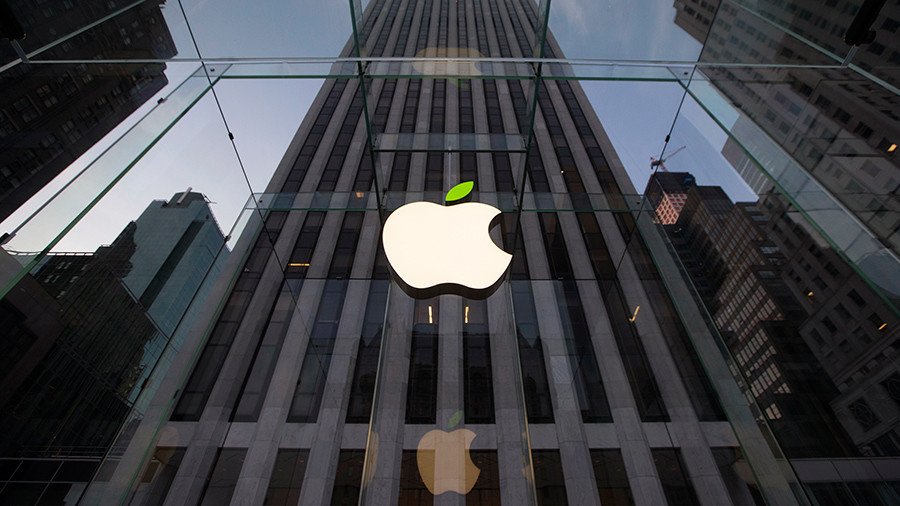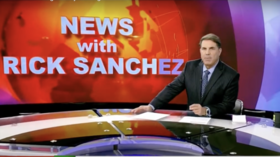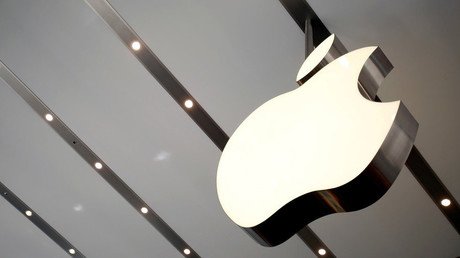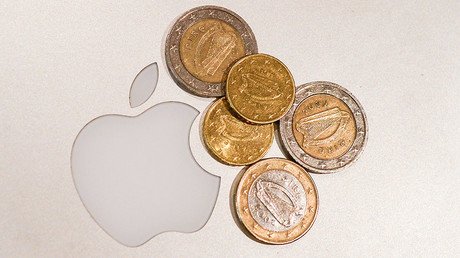Apple keeping $47bn of its own money deemed ‘windfall’ profit by tax reform critics

There is growing opposition to the GOP and US President Donald Trump’s impending tax overhaul, as a new analysis finds Apple is reaping tens of billions in “extra profits” from the plan. Apple earned that money under the current tax law.
When it comes to taxes, Apple is unique among giant multinational corporations. It stands alone in its practice of setting aside funds specifically in anticipation of potential taxes to be paid. Aside from the tech giant being the most valuable company in the world, that is why the Financial Times focused on the iPhone maker in a specific analysis of the impact of the Senate’s and House’s tax-reform proposals.
The Financial Times found Apple would benefit from a $47 billion “windfall” under the new tax regime, and as the report ripped through social media this week, it provoked outcry from critics of the Republicans’ tax reform agenda.
So the GOP is about to (essentially) write Apple a check for $47 billion while cutting programs for homeless vets? Am I getting this right?
— Chris Hayes (@chrislhayes) 7 декабря 2017 г.
Apple's cut of the tax bill is $47 billion? Is it on top of already offshoring their pile of cash? Our rising industry, tech, doesn't pay much in way of taxes, nor does it hire that many people at high wages. That, as much as their impact on the public sphere, is the story. https://t.co/IP3hxDUJjA
— zeynep tufekci (@zeynep) 7 декабря 2017 г.
The GOP is cutting apple a check for $47 billion AFTER cutting children's healthcare and before cutting programs for homeless vets
— Monjula Ray (@queerBengali) 7 декабря 2017 г.
Sorry, disabled children and elderly folks. Apple needs another $47 billion to move offshore. https://t.co/ZOL96YCcIl
— Jennifer Hayden (@Scout_Finch) 7 декабря 2017 г.
However, windfall profits occur when unexpected income is gained, and the $47 billion figure is already in Apple’s coffers. A lower tax rate than the company initially planned for years ago may be unexpected, but simply not paying more in taxes can’t be considered a profit in the same sense that profits are made by producing goods consumers want to buy. MSNBC’s Chris Hayes goes even further, tweeting that the US government is giving, he adds a parenthetical “essentially” $47 billion to Apple.
The Financial Times arrives at the $47 billion figure in a straightforward way. Apple figures that under current US tax law, it would be taxed $78.6 billion if it repatriated the $252 billion it holds in foreign cash and investments. Under the Senate’s version of tax reform, Apple would pay just $31.4 billion on overseas earnings it brought back to the US. The difference between the two potential tax payments is $47 billion.
That side account Apple has for potential tax payments on foreign income, which other multinational corporations choose not to have, has about $36.4 billion in it, $5 billion more than the likely tax bill. The US tax bill could potentially be even lower, just $29.3 billion, if Apple is forced to pay €13 billion ($15.3 billion) in back taxes to Ireland in an ongoing legal battle with the European Commission.
However, only one of the two US tax payment scenarios actually has a chance of becoming reality. Apple has no plans to move its $252 billion to the US under the current tax code. That money just sits in place. It only “gains” the $47 billion it already had stashed away after paying the US government tens of billions of dollars in taxes. Not to say $47 billion is a pittance, even for Apple. No other US corporation earns that much in profits per year, according to the Financial Times.
The US economy is doing well for multinational corporations and Wall Street, even without tax reform. But average American workers are cautiously optimistic about tax reform in various polls. There seems to be a very large question mark over the prospects of wage growth and job creation.
The Financial Times reports that Apple executives probably will use their repatriated money for stock buybacks, not creating factories or jobs. If that happens, and Apple is any indication, then the rest of the US corporations repatriating much of their over $1 trillion parked overseas may not translate into a windfall for workers either.
The House and Senate, along with input from the White House, will work out the differences between their two tax reform proposals this month. Trump has said he hopes to sign the final product into law as a “Christmas present” for the American people.
















